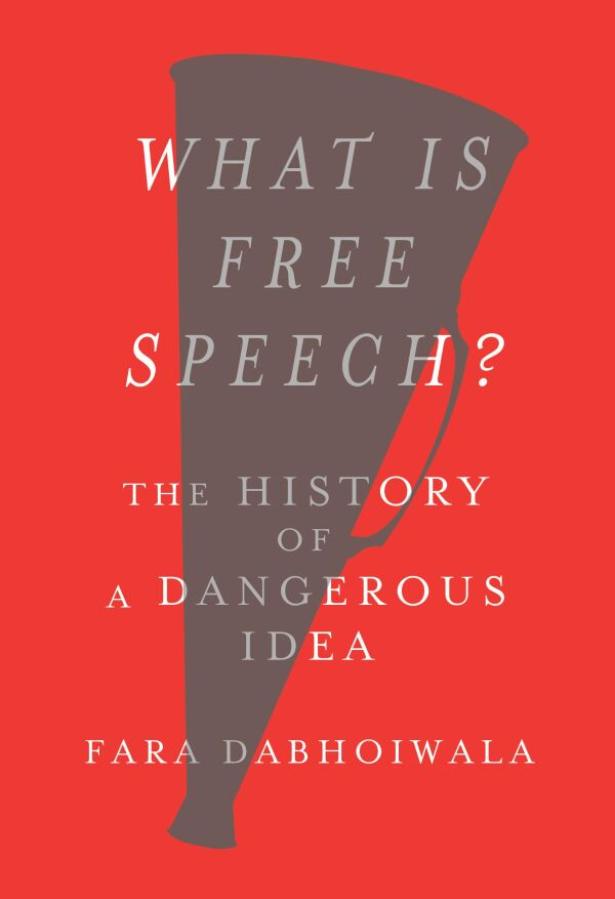What Is Free Speech?
The History of a Dangerous Idea
Fara Dabhoiwala
Harvard University Press
ISBN 9780674987319
This book arrives at an interesting moment. Elon Musk has declared himself a “free speech absolutist”. JD Vance worries that free speech in Europe is “in retreat”. Donald Trump issues an executive order “restoring freedom of speech and ending federal censorship”. Meanwhile, journalists are routinely abused, threatened with lawsuits and branded enemies of the people. US federal agencies circulate lists of red-flag words such as “equality”, “gender” and “disabled”, and reporters are denied White House access for referring to the Gulf of Mexico by its actual name. Free speech is, shall we say, an elastic concept.
In fact, as Fara Dabhoiwala explains in this meticulous and much-needed history, it has long been a “weaponized mantra” in a public sphere dominated by the moneyed and the powerful. Many of those who think of free speech as being uniquely under threat today are rich, white men – but then freedom, like wealth, is something that hardly anyone thinks they have enough of.
Most 19th-century thinkers on free speech, including Mill, supported the selective silencing of non-Europeans. In colonial India, free speech and press liberty were viewed as tools of enlightenment, benevolently bestowed by the British should the natives prove themselves worthy. While the Indian press was ostensibly free, a series of laws and practices maintained government control over all printed materials. Since Indians were seen as hot-headed, there were also specific laws against defamation and religious insult, later inherited by the new nations of India, Pakistan and Bangladesh. From its beginnings, free speech was a complex and compromised ideal.
All speech is regulated, Dabhoiwala argues, officially or unofficially. We call this regulation “censorship” when we dislike it, but it is an inescapable fact of the social nature of language. Academic scholarship, for instance, has a highly evolved system of quality control maintained by agreed methods and protocols, anonymous peer review and norms of scholarly and civil expression. This not only ensures intellectual rigour, but protects against ad hominem attacks and the domination of debate by vested interests.
Nowadays, free speech absolutism affects us all because of the unparalleled power of the US companies that control our access to the online world. Social media sites were heavily implicated in Russia’s efforts to influence the 2016 US presidential election; the dissemination of misinformation about Covid and its vaccines; and the spreading of violent propaganda against the Rohingya in Myanmar. Yet Facebook is now following X in rolling back its content moderation and factchecking operations in the name of ending “censorship”.
The lax attitude to hate speech by American social media companies shouldn’t come as a surprise. Their main concern is with profit and market share, which favours both the proliferation of content and algorithms guiding us to the shoutiest and most polarising statements. But they can dress up this economic self-interest in American beliefs in the nobility of the first amendment – and may be sincere in doing so.


Spread the word